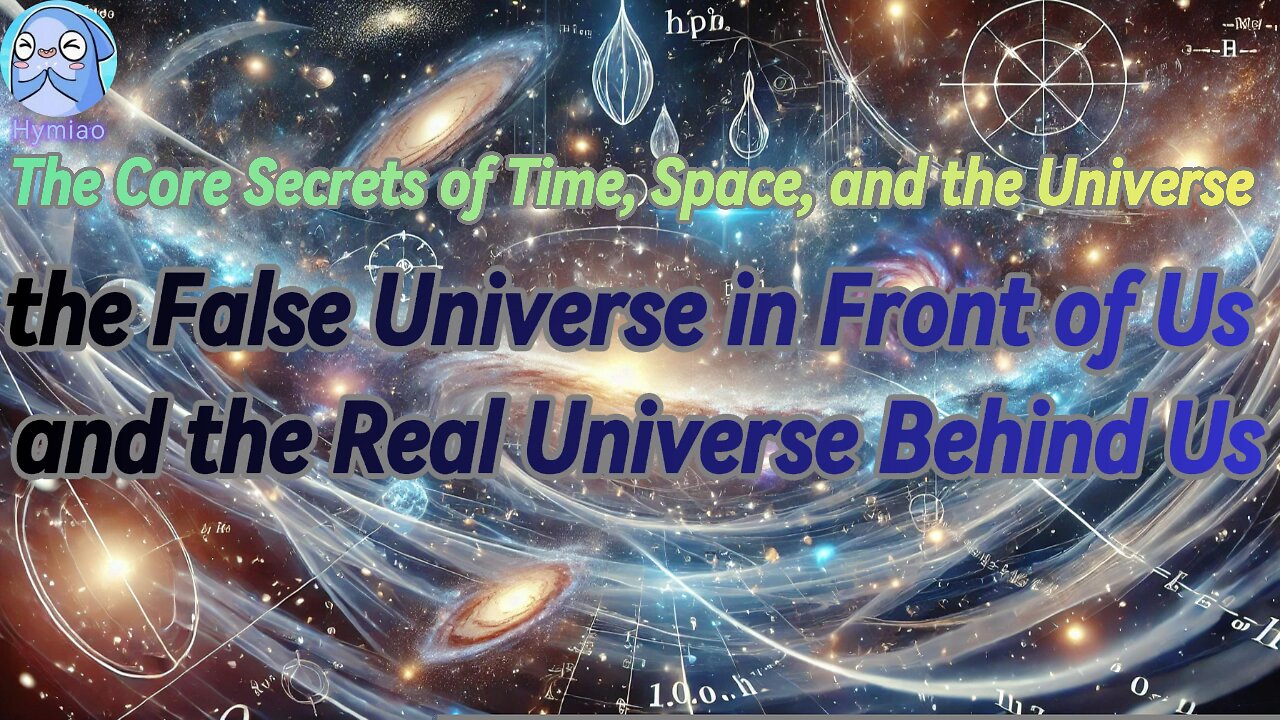Premium Only Content

The False Universe in Front of Us and the Real Universe Behind Us
**This video is the second chapter of "The Core Secrets of Time, Space, and the Universe," titled "The False Universe in Front of Us and the Real Universe Behind Us."**
1. **The False and the Real Universe**: The article suggests that the world we perceive through our senses and brain is processed and cannot represent the true nature of reality. For example, different species (like humans and dogs) perceive colors differently. Color is not an inherent property of objects but is determined by the interaction of light waves and brain processing.
2. **Distinction Between Objects and Events**: The article argues that everything in existence can be divided into two categories: objects (like mountains, trees, and people) and events (like the growth of a tree, human thoughts, and consciousness). Objects are the source of events, and events are the manifestation of objects. We come to understand objects through events, but objects can exist independently of events.
3. **The Importance of the Observer**: The article emphasizes that many physical concepts, such as sound, color, and heat, are merely descriptions created by human senses and cannot exist independently of the observer. For example, sound does not exist as a concept without someone to hear it.
4. **The Relativity of Motion and Rest**: By discussing the motion of objects, the article points out that both motion and rest are descriptions made by the observer. Without an observer, it is impossible to determine whether an object is at rest or in motion. This also explains why many phenomena in quantum mechanics remain unresolved.
5. **The Illusory Nature of Physical Phenomena**: The article argues that other physical phenomena are purely descriptive, aside from objects and space. For example, concepts like time, fields, velocity, and energy are all phenomena created by the motion of objects in space and rely on the observer’s perception.
6. **The Limitations of Materialism and Idealism**: The article criticizes both materialism and idealism, arguing that each has shortcomings. Idealism fails to acknowledge the independent existence of objects and space, while materialism does not recognize that many physical phenomena are simply descriptions created by human perception.
-
 LIVE
LIVE
vivafrei
2 hours agoBlackmail & Pardons! From Matt Gaetz to Hunter Biden! Live with VillgeCrazyLady! Viva Frei
2,084 watching -
 1:01:47
1:01:47
The Dan Bongino Show
3 hours agoBiden Gives a Giant Middle Finger To America On His Way Out (Ep. 2380) - 12/02/2024
540K1.36K -
 2:06:59
2:06:59
Steven Crowder
3 hours ago🔴 Joe Lets Hunter Off the Hook & Will Kash Clean Up the FBI?
313K186 -
 LIVE
LIVE
Viss
2 hours ago🔴LIVE - Did This New Season Save Apex Legends?
926 watching -
 LIVE
LIVE
Grant Stinchfield
58 minutes agoJoe Biden's Next Set of Pardons Will Leave You Speechless
481 watching -
 LIVE
LIVE
The Shannon Joy Show
5 hours ago🔥🔥The Bitcoin Heist & Land Grab INCOMING - Proceed With CAUTION - Are Progressive Leftists & Techno-Fascists Infiltrating MAHA & MAGA? 🔥🔥
626 watching -
 39:56
39:56
Tudor Dixon
2 hours agoSurviving the Trans Myth: Laura Becker's Story | The Tudor Dixon Podcast
12.6K1 -
 44:27
44:27
SB Mowing
3 hours agoHe DOUBTED we could do this job but the LAWN DREAM TEAM proved him WRONG
38.3K8 -
 1:38:34
1:38:34
Caleb Hammer
2 hours agoThe Impossible Financial Audit
25.1K2 -
 LIVE
LIVE
LFA TV
16 hours agoPARDONS AND PUNISHMENTS! | LIVE FROM AMERICA 12.2.24 11am EST
5,303 watching